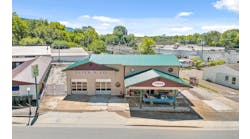Chuck Sulkala entered the auto industry at a young age, beginning with working closely with his father and business partner at the family operation. With over four decades of experience, Sulkala is known to many as a prominent speaker and spokesperson within the collision repair industry.
Holding many different leadership positions throughout the years, Sulkala is well-known for founding and acting as Executive Director of the National Auto Body Council (NABC). Sulkala is recently retired and continues to offer his insights and knowledge about the inner workings of the collision repair industry.
HOW DOES THE INDUSTRY TODAY COMPARE TO WHAT IT WAS LIKE 20 YEARS AGO?
I believe the thing that has really changed so rapidly has become the involvement of the OEMs in the certification process. This has made a major impact, and it has heavily affected where shops do their training and what tools and equipment they’re buying.
Frankly, what I see is that the industry has almost been reduced to that of a labor union. The shop is the one to perform the work, and in most cases, they have little say in the tools and equipment they use and how they’re going about fixing a car. Good or bad, I’m not sure. But I think this definitely limits the ability of a collision shop to be their own person.
The fact that vehicles need to be repaired in such a specific manner to ensure that things are safe and fixed properly has positives and negatives to it. This certainly wasn’t the case 20 years ago. Shops not knowing how to do repairs was really how ICAR got started.
Now here we are today with the OEMs telling us what to do, but not necessarily how to do it. There has been a sort of shift in evolution, and I see it as a concerning challenge for the repair industry. If you’re not in someone’s good graces--oftentimes to get certified you need to be on a “good guy list”--there is a concern of limiting one’s ability to grow business.
WHAT HAS BEEN THE BIGGEST GAME CHANGER OVER THE PAST 20 YEARS?
Certainly the computer has been a big game changer in the industry. First, from the point of administration. Back 20 years ago, while some of the larger shops did have computers to help run their business, it just wasn’t commonplace yet. Computerized estimating was getting started back then, but it was only in the early stages.
While there’s benefits of this in terms of administration, the complexity of computers being used in vehicles has led to issues and concerns about scanning vehicle. The computers are getting bigger with more processing capability to the point where I wouldn’t be surprised if cars started picking us up and delivering us somewhere soon.
WHAT DO SHOPS NEED TO DO TO BE SUCCESSFUL OVER THE NEXT 20 YEARS?
As someone who sold my business a few years back, I have growing concerns about the increased need for training and equipment, and the ability to recruit expenses. Making considerable investments into these things is going to be a decision that shops need to make in the near future.
Shops will take one of two routes when faced with this decision. Some will get the equipment, training and talent to repair complex vehicles. They will make efforts in marketing, or they’ll let someone else market their business as the industry changes.
Others may have the attitude that, “Nah, that’s not for me. I’m going to keep doing work the way I always have.” This position isn’t necessarily bad, but it will limit the type of work they can take in.
There’s plenty of money that will be available from traditional and cosmetic repairs, but the real concern with this is that these shops will continue to fix vehicles in the same manner they always have. With the technological complexity that’s inside of today’s vehicles, a shop that does only cosmetic repairs and doesn’t invest into new tools may be neglecting major trauma repairs that the car contains. The business may run just fine, but this isn’t the most sustainable or safe options for customers.


